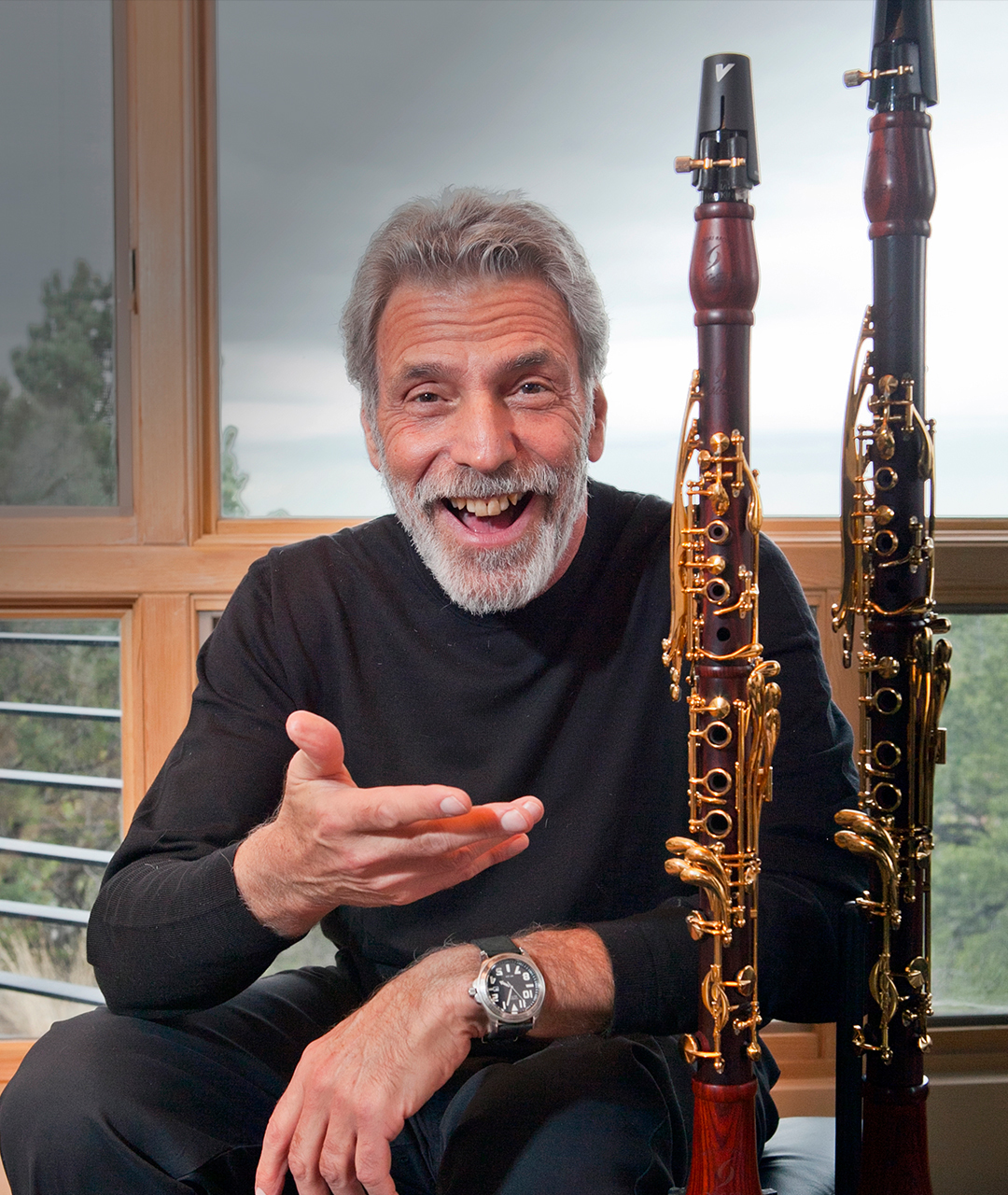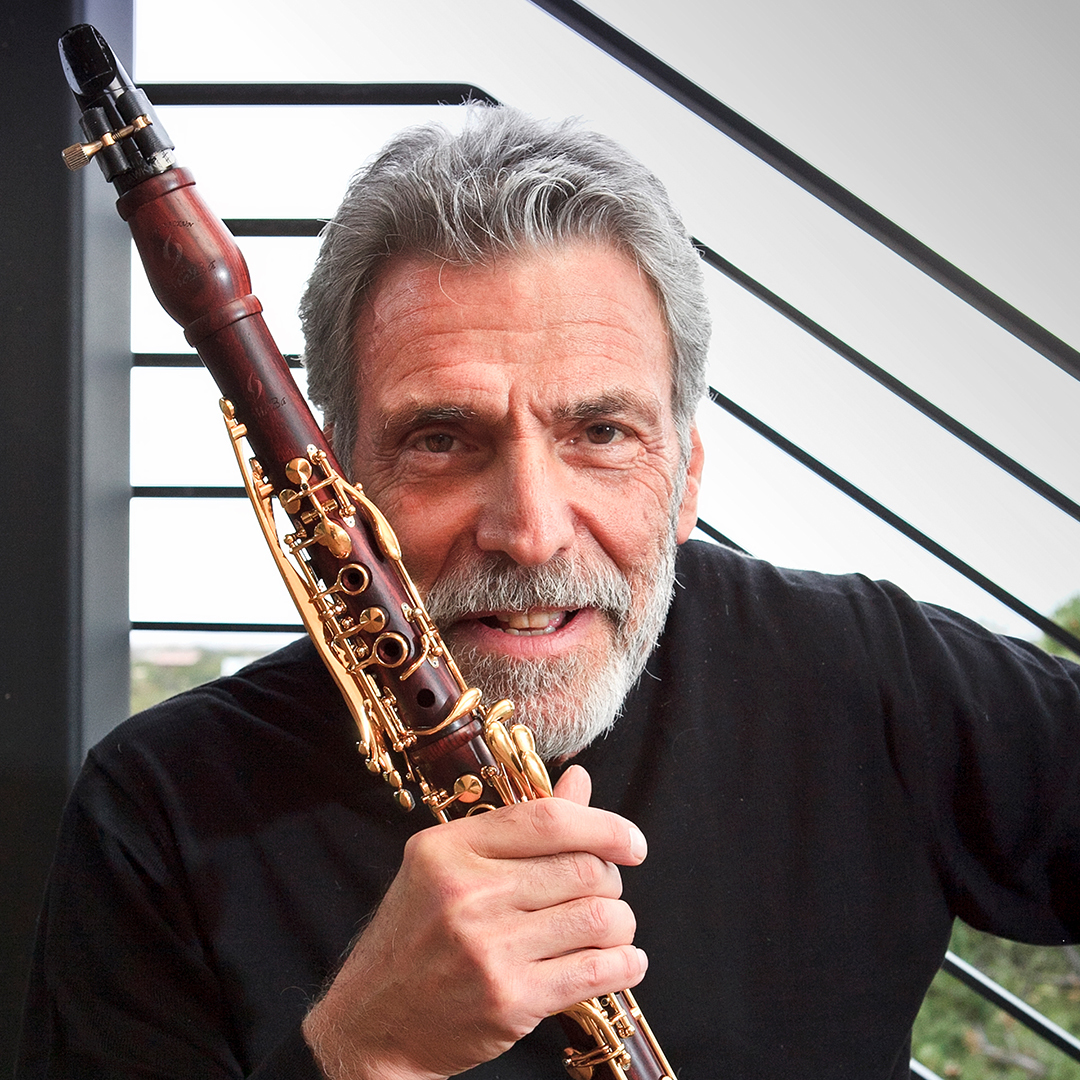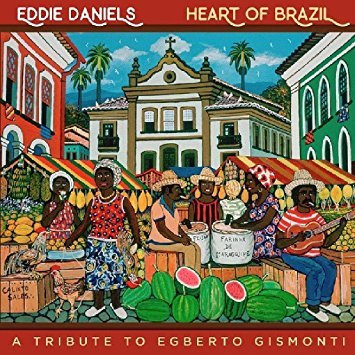The Heart of Brazil CD Release: An Interview with Eddie Daniels
Date Posted: June 06, 2018
Could you tell us more about Egberto Gismonti and your new CD, Heart of Brazil?
Eddie Daniels: Egberto Gismonti is a name I didn't know really well until George Klabin, who's the head of Resonance Records. He came to me and said "Eddie, I want you to listen to this music." So, he sent me many tracks of Gismonti singing his own tunes, of other people doing his tunes, and I fell in love with the music right away.
The music was so beautiful that I thought how could I do justice to this music? Because the best that an instrumentalist can do to match something that's vocally beautiful is to really surrender the sound of your instrument so it becomes your voice.
After listening to a lot of Gismonti’s music and falling in love with it, I started to think, where would my voice be on this record? Certain tunes were more perfect for the clarinet, and there were a couple of tunes that were more for the low saxophone, which was more like the voice of the Brazilian/Portuguese language being spoken. It came to me - it was a gift from George Klabin that said, "do this!" I think people will be delighted with this album when they hear it.
What characteristics of Gismonti's playing did you apply to your clarinet and saxophone voices?
Well, the interesting thing is that it's more vocal and not like tunes - it's not the same as a tune (A section and a B section), it changes throughout. He'd write something that goes in a lot of directions and then he comes back and then pulls you in another direction; it was very interesting to me. I didn't know how I would do that because I'm a tune player, you get used to playing the melody.
I started listening to it and as happens with me when I get thrown into a situation, sometimes, not always, I can surrender to it and find a way to live in that music without thinking too much. That's the important thing - without thinking too much. When I finally was in L.A. and he put it all together, we had the arrangers all set and I had a pile of music on my stand, which I looked at it a little bit. I didn't really practice any of it. I didn't want to do that. I wanted to be thrown into it and have it be spontaneous - my reaction to the music. Mostly what I'm hearing is my reaction to the music and I'm liking it because I didn't have the filter of my mind saying, 'do this, do that, you should play this way.' The music and the sound of the string quartet, and everything in it was so appetizing that it threw me into it in a non-conceptual way.

Photo by Paul Gitelson
How did you find all the instrumentation and musicians? Could you tell us how you developed the ensemble?
I used a string quartet. The music he sent me (Klabin), which was just a rhythm section, singers, and a smaller ensemble. I had played with the Harlem Quartet the year before and Charlie Fox - a great composer that wrote Killing Me Softly - wrote a quintet for us that we premiered here in Santa Fe. They were very gracious to let me be on their program because their program was already set and they said come and play with us! I said, Charlie, would you write me a quintet with this group? He said yes. So, that's how I got to meet the Harlem Quartet and in a sense, premiere a clarinet quintet by Charlie Fox that he wrote for me and the quartet. It was quite a beautiful piece. I thought to myself, these guys are great and I'd like to record more with them. That's when I brought them into this project and told George Klabin that I would like the idea of some of them to be a string quartet, rhythm sections, and myself. I'm very pleased with it!
The arrangers?
There are four arrangers: Kuno Schmid, Josh Nelson, Ted Nash, and Mike Patterson. Mike Patterson and Ted Nash were my choices. Ted did four charts and then there's one of my originals called Tango Nova. That's the one Mike Patterson did.
The other two, Josh Nelson and Kuno Schmid did the other arrangements. I was delighted with how beautiful they wrote. I didn't know Josh and Kuno's writing, but George Klabin made some very good calls on who should be the writers because that could've changed everything.
How do you prepare to record in a studio setting?
I brought my own microphone - I use an AMT microphone on my clarinet. I had asked for a special mic for the tenor and we ended up not using it and futzing around with the saxophone mic, but I used my own clarinet mic, plus theirs.
I'm more of a studio person than I am a stage person. Although, I've done a lot of both. But, having been in NY as a studio rat, going from studio to studio, putting solos on records, I got used to that kind of thing. I like being in front of the mic, I like being able to say ‘let's do another one.’ Although on this record, we didn't do another one. There was no time…there were 13 tunes and we had to go through them! But generally, because I've been in studios as a soloist and overdubbing solos on a lot of records, I'm comfortable in that situation, so there is no preparation.
For me, the preparation is I gotta get my best Vandoren clarinet reed ready. Because I live in high altitude in Santa Fe, which is 7200ft above sea level and L.A. with the studio is at sea level, you must have reeds that are harder when you're coming from high altitude down to sea level. That's mostly my preparation: having reeds ready that in a matter of flying in, getting off a plane and going to a studio, you have reeds that will work in a different atmosphere.

Photo by Paul Gitelson
Do you have a reed break-in process?
Yeah, I do, and I pre-break them in. I have several reeds that I put in my case, I'll play them a little every day, but you can't break them in Santa Fe because they don't play well up here. In the high altitude, the reed that I would be trying to break in for sea level, would be too hard. So, I wet it and dry it and let it go through a couple of processes. Sometimes you just have to play the newest, best reed that you have at the moment. But mostly, having a few days to have a reed go through its cycle is a good thing.
What message did you want this CD to send?
I wanted to send the message: first listen to the album, come away with a sound in your head that you're hearing, and think about it. Think about how did he do that. Everybody will listen to this album, the Heart of Brazil, and come up with different questions, which I'll be glad to answer as we go down the road. I think the clarinet sounds different from anything that I've ever done and it's something I'm quite pleased with; because of being thrown into the situation and having to express myself spontaneously, without having that much time to think about everything.
I would say to students, practice your buns off! Have so much in your basket of technique, chops, and sound that when you finally get to the studio, you can let go of all of it. But if you don't have chops, if you haven't practiced your scales, your long tones, or if you're not solid with yourself, getting in front of a microphone is not going to help you (or it might help you see what you need to do). So that's my basic message - practice your buns off! Be ready!
I'm still doing that at my age, as I keep on making more records, I have to be ready. I want to be more ready for whatever comes my way and then I can let myself go. I'm lucky that we have Vandoren because I think they're the best. They have the best sound. You need to have a reed that you feel good with, you have to have good chops, you have to be in good shape, and you have to be in the zone. If you're not in the zone, it's going to be a little bit of a struggle. That's why I'm still practicing, me being in the 70s at my age. I still have to practice. It's a never-ending process. That's what makes it an art form.
It's not something that you can own. I'm enjoying what this record sounded like, but I don't "own" that Eddie Daniels. That was an Eddie Daniels that came out at that session, that revealed itself. I can't say that I could do all that again, I could come close to it, but I don't own Eddie Daniels.
The sound on the clarinet? We have to go back into the room, practice, see how it feels, go to the studio, and see then what it feels like. It may feel different than it was in your room and that's the basic mystery of the clarinet, and of a lot of instruments.
Where do you see recordings going in the future?
Resonance Records is doing something new that no one else is doing - they're putting out CDs! Hardly anyone is doing that. They're promoting it. Resonance Records is one of the great new labels. They put out the opening night of the Thad Jones/Mel Lewis band, which was recorded by George Klabin years ago. He came in and recorded it himself and recorded it on a Sony Pro Walkman cassette machine. He's now putting out records of things that he put in the closet from years ago and he's making new albums. I'm excited about where Resonance Records is going with this new world where everyone else is packed up and left. Now they're coming back with some fresh music and I think Heart of Brazil is a totally fresh album.

Subscribe to the We Are Vandoren E-newsletter (WAVE) to receive 4 weekly articles for Performers, Students, and Educators